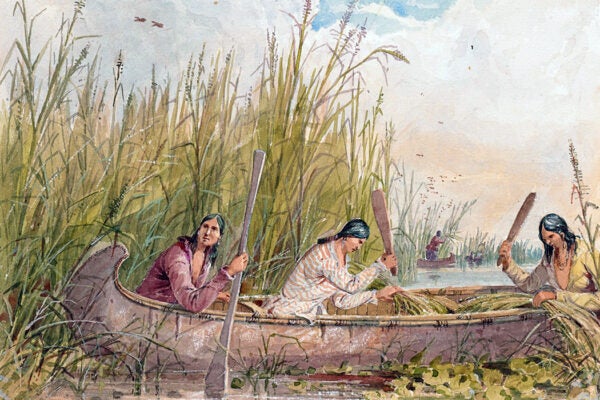Defying Slave Hunters in Boston’s Courts
A dramatic 1836 courtroom escape shows how Black women challenged slave hunters—and Boston’s elite.
Knit One, Bomb Two: A Primer on Yarn Bombing
Soft fiber meets hard infrastructure in a global movement that tests the bounds of public art.
The Wedding Ritual Where Brides Wept in Song
In southern China, weddings once began with a ritual that let brides speak the unspeakable.
Wild Rice and the Rights of Nature
A groundbreaking lawsuit asks whether wild rice, or manoomin, can hold legal rights under tribal law and the growing rights of nature movement.
Dana Elle Murphy on Black Feminist Criticism
An interview with Dana Elle Murphy, whose work explores how drafts, fragments, and literary lineages expand our understanding of Black women’s writing.
When Profit Met Protest in Colonial New York
Economic self-interest shaped how New Yorkers responded to British taxes and imperial crackdowns.
How Gender Discrimination Works at Work
A study of employment discrimination cases reveals how bias operates through workplace rules.
Drought and Indigenous Migration in the American Midwest
In the seventeenth century, life at the prairie–forest edge was dynamic, unstable, and deeply shaped by climate.
In the Film Death in Venice, Music Is the Narrator
A haunting score shapes the rise and fall of a writer consumed by infatuation.
Simone de Beauvoir’s Only Play
Beauvoir’s Who Shall Die? explores moral responsibility and the unequal valuation of human life during wartime.









